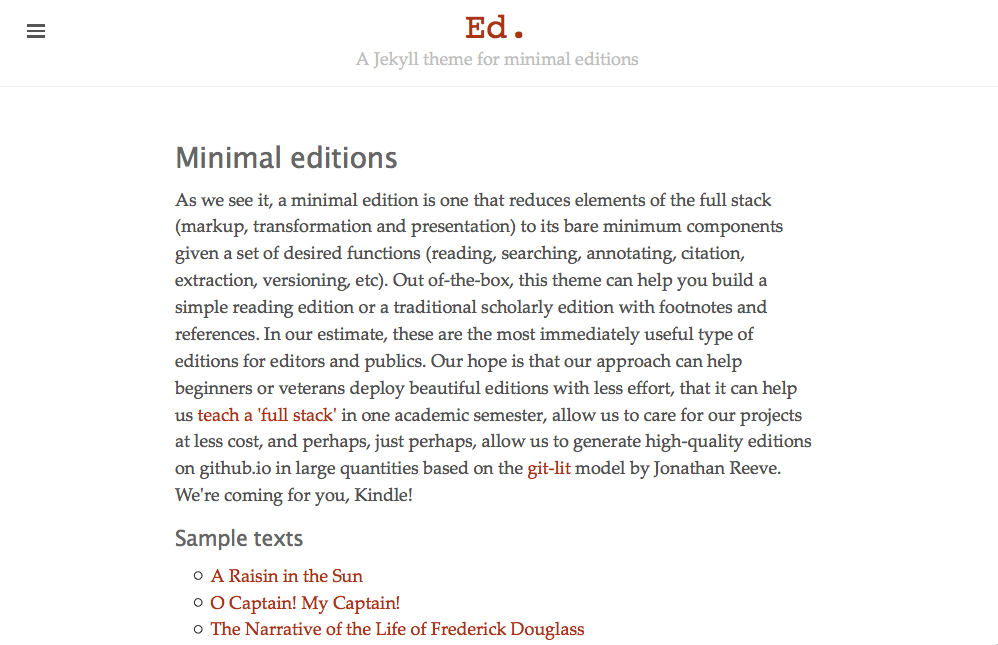Ed
- Alex Gil
One of our most pressing and ever revolving needs as scholars is to pass on our textual artifacts from one generation to another. The art of textual editing, among other practices, has helped many cultures to remember and interpret for centuries. Alas, that art is practiced and encouraged in its highest form by a dwindling number of scholars. In a digital environment the problem is compounded by the difficulties of the medium. While vast repositories, and “e-publications” appear on the online scene yearly, very few manifest a textual scholar’s disciplined attention to detail. In contrast, most textual scholars who have made the leap to a rigorous digital practice have focused on markup, relying on technical teams to deploy and maintain their work. This makes your average scholarly digital edition a very costly, and therefore limited affair. We hope that Ed can help would-be and veteran textual scholars make it easier to deploy their own editions in a lasting way.
As we see it, a minimal edition is one that reduces elements of a digital edition to its bare minimum components. Out of-the-box, this theme can help you build a simple reading edition, or a traditional scholarly edition with footnotes and a bibliography. In our estimate, these are the two most immediately useful type of editions for editors and readers. An edition produced with Ed is lightweight and durable. Our hope is that our approach can help beginners or veterans deploy beautiful editions with less effort, that it can help us teach a ‘full stack’ in one academic semester, allow us to care for our projects at less cost, and perhaps allow us to generate high-quality editions on github.io in large quantities based on the git-lit model by Jonathan Reeve.
Ed is a Jekyll theme designed for textual editors based on minimal computing principles. In other words, the technology is easier to learn or teach and can produce beautifully rendered scholarly or reading editions of texts. The resulting edition consists of static pages whose rate of decay is substantially lower than database-driven systems. As an added bonus, these static pages require less bandwidth.
Ed is built on top of Lanyon, a Jekyll theme based on Poole, “the Jekyll butler,” both created by Mark Otto and distributed with an MIT license. Thanks to Mark Otto for his helpful streamlining.
